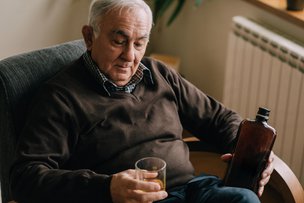Post Traumatic Stress Disorder (PTSD) is an anxiety disorder that can affect anyone at any age. The disorder is caused by a very stressful, frightening or distressing event.
Older people, having lived for longer are more likely to have experienced a distressing event at some point in their lifetime, whether it be WWII, a serious accident, or most recently, the Covid-19 pandemic which required people over 65 to self-isolate for 12 weeks.
Main Symptoms
- Nightmares or night terrors
- Feeling isolated
- Feelings of guilt
- Difficulty concentrating
- Vivid flashbacks of the event
- Feeling irritable in general
- Insomnia (Trouble with sleeping)
- Emotional numbness
Common Causes
- A serious road accident
- Serious healthcare problems
- Neglect during childhood
- Natural disasters
- Childbirth experience
- Vicious assault such as sexual assault or robbery
- A serious injury
- War & conflict
Can PTSD be treated?
Fortunately, PTSD can be treated, even in cases where someone has complex PTSD*. The following methods of treatment are commonly used by GP's:
- Waiting to see whether symptoms pass by themselves
- Anti-depressants
- Psychological therapy such as Cognitive Behavioural Therapy (CBT) or Eye Movement Desensitisation and Reprocessing (EMDR).
Complex PTSD*
Those who have been unfortunate enough to experience a traumatic event over and over again will undoubtedly be more seriously affected than those who have had a one-off experience. It may be that the person has been subject to constant domestic/mentally abuse by someone they live with. In these cases, they will be diagnosed with Complex PTSD.
If you suspect that your older loved one has PTSD, please get in touch with their GP as soon as possible.
Are you looking for care for someone? If so, we are here to help!
Call us on 01865 638018
Send message

